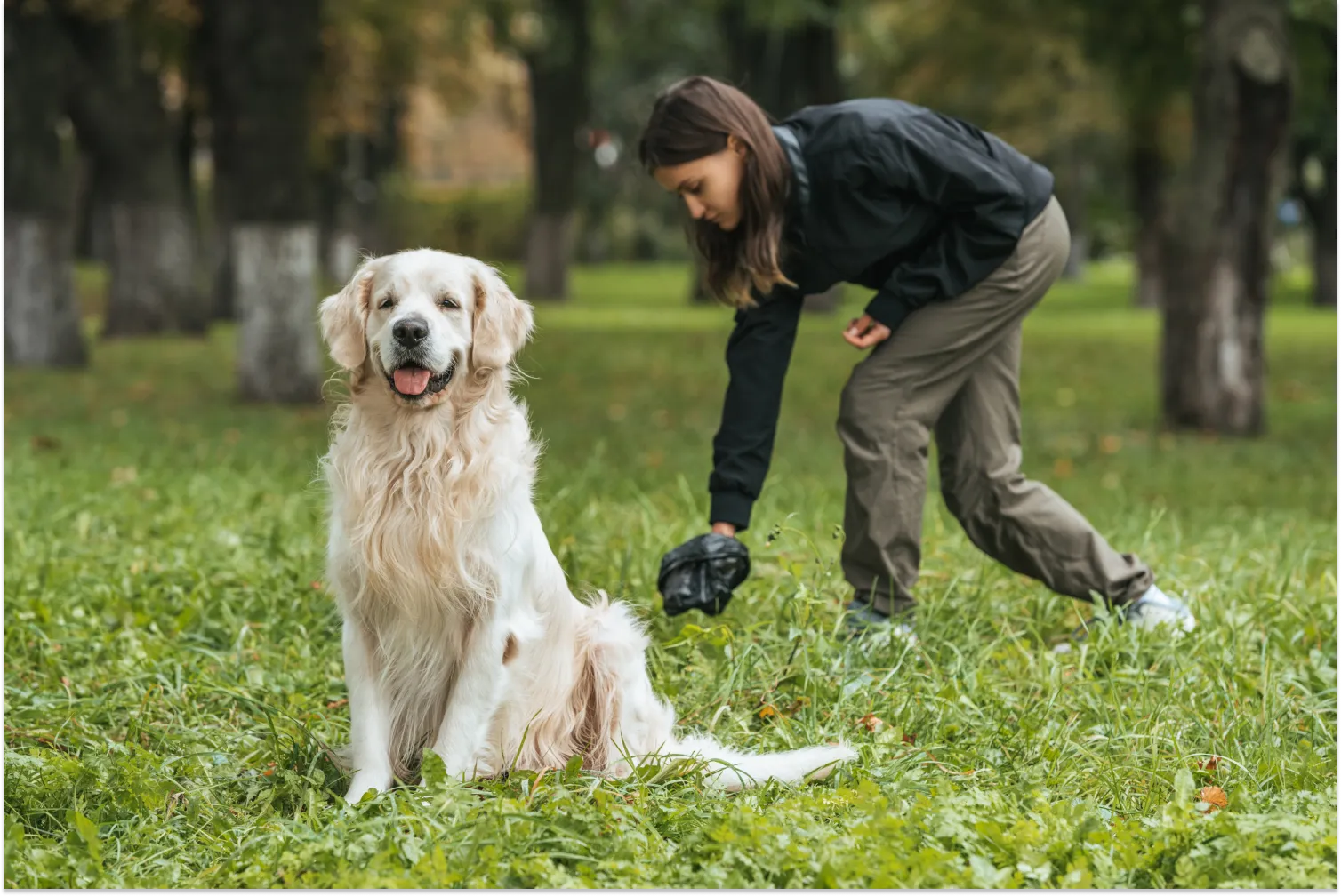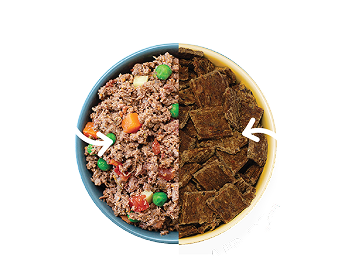
Why Does My Dog Have Diarrhea?
Table of Contents
- Understanding Diarrhea in Dogs
- What Are the Causes of Diarrhea in Dogs?
- What Role Does Food Play?
- How Can I Diagnose the Underlying Cause?
- The Connection Between Food and Gut Health
- Remedies and Treatments
- Preventative Measures and Care
- When Should I Seek Veterinary Attention?
- Support Pup Health With A Pup Above
For many dog lovers, our furry companions aren't just pets — they're family. Like any family member, when they're not feeling their best, we want to discover why and help them recover as soon as possible.
One common health concern among our four-legged friends is diarrhea. Understanding the possible causes and implications is essential, especially given the importance of dietary choices and pet health. A Pup Above is dedicated to pup health and care, and we’re shedding light on this sometimes messy subject.
Understanding Diarrhea in Dogs
Diarrhea is more than just a minor inconvenience for your pup. It's a sign that something is off within their gastrointestinal tract. Generally characterized by frequent loose or liquid stools, it can result from various factors, from dietary changes to more serious health issues.
Observing your dog’s stool isn't the most glamorous task, but it is pivotal for their well-being. Just as we'd notice if our food wasn't sitting right, paying attention to any significant changes in your dog's bowel movements can provide essential insights into their health.
What Are the Causes of Diarrhea in Dogs?
Every dog parent has probably asked this at some point: "What did you eat?!" But the cause of diarrhea can range from simple to complex:
Dietary Indiscretion
This fancy term essentially means your dog ate something they shouldn't have. Whether it's table scraps from last night’s dinner, a sudden change in their dog food, or that mystery item they discovered on their walk, such ingestion can lead to upset stomachs and diarrhea.
Foreign Objects
We know how curious our pups can be, and sometimes, that curiosity leads them to swallow objects that can cause blockages in their digestive system. From toys to socks, these foreign objects can upset their stomach and often result in diarrhea.
Food Intolerance and Allergies
Like humans, dogs can also be allergic or intolerant to certain food items. It's not just about what they eat but also about how their bodies react to it. Identifying food allergies can be a process, but it's crucial to ensuring their comfort and health.
Parasitic Infections
The outdoor world is a playground for dogs but can also be a source of intestinal parasites. Roundworms, whipworms, hookworms, giardia, and even coccidia are some of the culprits that can wreak havoc on your dog's digestive system.
Viral and Bacterial Infections
Dogs, especially those frequenting parks or in close contact with other dogs, can catch infections. Parvovirus, salmonella, coronavirus, and distemper are some infections that can lead to diarrhea. Always ensure your dog’s vaccinations are up-to-date to prevent such ailments.
Remember, while some of these causes might sound serious, many cases of diarrhea are treatable. It's all about identifying the issue early on and ensuring your furry friend gets the right care, whether it's a change in diet or a visit to the vet.
What Role Does Food Play?
Your dog’s diet significantly affects their overall health and well-being. Think of it as fuel; the better the quality, the smoother the journey. But sometimes, even with the best intentions, our food choices for our dogs can lead to a tummy upset.
Dietary Indiscretions
Treating our furry companions to human delicacies is tempting, especially when those puppy eyes are begging for a bite of your dinner. However, some table scraps and human medications can lead to an upset stomach. Not all human foods are dog-friendly, and some can be downright harmful.
Transitioning to a New Food
Introducing a new food should be a gradual process. A sudden change can be a shock to your dog’s digestive system. If considering a switch, especially to high-quality, gently cooked food (like sous-vide options), ensure a gradual transition to give their gastrointestinal tract the time to adjust.
Regular Food vs. Bland Diet
Sometimes, our pups need a little digestive reset. In cases of mild diarrhea, a bland diet — like boiled chicken and white rice — can often help soothe an upset stomach. However, it’s always good to consult with a vet before making significant changes to their diet.
How Can I Diagnose the Underlying Cause?
When your dog experiences bouts of diarrhea, understanding the root cause becomes paramount. While occasional loose stools can result from dietary changes or minor upsets, persistent or severe symptoms demand attention.
Veterinary Care
It's not just about the symptoms. It's about understanding the underlying cause. Veterinary professionals can offer insights, conduct blood work, and other diagnostic methods to pinpoint the exact issue. After all, our pups can't tell us what's wrong, but science and expertise can.
Observing the Poo
As unglamorous as it might sound, keeping an eye on your dog’s stool can be very telling. From bloody diarrhea, which might indicate inflammation or infection, to a tarry consistency signaling possible internal bleeding, these cues should not be ignored.
Accompanying Symptoms
Diarrhea, combined with other symptoms like weight loss, abdominal pain, or lethargy, can be indicative of a more serious health issue. Always keep a holistic view of your dog's health, noting any behavioral or physical changes that might accompany their digestive troubles.
When in doubt, always lean on the side of caution. Our dogs rely on us to ensure their health and happiness. Prioritizing their well-being by promptly addressing health concerns can make all the difference.
The Connection Between Food and Gut Health
The love we have for our dogs often reflects in the care we provide, especially when it comes to their diet. But understanding the intricate relationship between what they eat and their gut health can be a game-changer for their well-being:
Nutritional Choices
Just like humans, our dogs' food directly impacts their gastrointestinal health. Choosing high-quality, gently cooked food options, like sous-vide preparations, can provide optimal nutrition while maintaining the natural flavors that dogs adore.
Bone Broth Benefits
This ancient remedy isn't just a fad. Bone broth is rich in nutrients and can help soothe the digestive tract. Introducing it to your dog's diet can be both a treat and a health boost.
Food Safety and Health
While exploring unique and palatable food options for our dogs is wonderful, ensuring the safety and nutritional value of these choices is paramount. After all, their health hinges on the safety and quality of what they ingest.
Importance of Fiber
Incorporating fibrous foods into your dog's diet can help regulate bowel movements, ensuring a healthy balance in their digestive tract. Just a little tweak in their diet can make a world of difference!
In the quest for the best for our pets, understanding the nuances of their dietary needs and their connection to gut health allows us to make informed choices. As the saying goes, "You are what you eat," and this couldn't be truer for our furry family members.
Remedies and Treatments
Our nurturing instincts kick in when our pups feel under the weather. But while some treatments are straightforward, others require a bit more discretion:
Over-the-Counter Solutions
Not all human medicines are suitable for dogs. If you are considering an over-the-counter remedy for your dog's diarrhea, always consult a veterinarian first to ensure it’s safe and appropriate for your pup.
Probiotics
Just as humans benefit from these friendly bacteria, probiotics can be a godsend for dogs with digestive issues. They help in balancing the gut, supporting a healthy digestive system. But remember, choose one specially formulated for dogs.
Deworming
Those pesky intestinal parasites like hookworms or whipworms can be a common culprit of diarrhea. Regular deworming, especially for dogs frequently outdoors, can keep such troubles at bay.
Veterinary Prescriptions
Sometimes, the situation calls for more specific interventions. Don’t hesitate to seek professional advice and treatment when your furry friend's health is on the line.
Preventative Measures and Care
Prevention, as they say, is better than a cure. Especially when it concerns our furry family members:
-
Vaccinations: Keep those pesky viruses and bacterial infections like parvovirus and distemper at bay with regular vaccinations.
-
Electrolyte Solutions: Diarrhea can lead to dehydration. Electrolyte solutions can help rehydrate and restore essential minerals lost during bouts of diarrhea.
-
Monitoring Foreign Body Ingestion: A close eye on what your dog is munching on during those walks can prevent ingesting harmful foreign objects.
- Quality Dog Food: Quality matters. Providing a nutritious, gently cooked meal (like sous-vide options) ensures your dog gets the best while reducing the risks associated with low-grade dog food.
When Should I Seek Veterinary Attention?
While we love being hands-on with our pet's care, there are clear signs when professional intervention is necessary.
-
Prolonged Symptoms: If diarrhea persists for more than a day or two, it's time to call the vet.
-
Severe Symptoms: Bloody stools, extreme lethargy, or accompanying vomiting are red flags that shouldn’t be ignored.
- General Well-Being: Remember, you know your dog best. If something feels off or you’re uncertain, it's always better to seek a professional opinion.
Support Pup Health With A Pup Above
Understanding the root causes of diarrhea in dogs and knowing how to act is essential for every dog owner. With the right knowledge, care, and a touch of preventative measures, our furry friends can lead healthier, happier lives. After all, their well-being is a testament to our love and care.
Let's keep their tails wagging and their spirits high!
Sources:
Get the Facts about Salmonella | FDA
The Role of the Canine Gut Microbiome and Metabolome in Health and Gastrointestinal Disease - PMC
The power of probiotics | Cornell University College of Veterinary Medicine
Top Stories

Why Do Dogs Lick Their Paws?

Why Do Dogs Whimper & Make Noises in Their Sleep?

Healthy Vet-Approved Homemade Dog Food Recipes

How To Cook Sweet Potatoes for Dogs






















